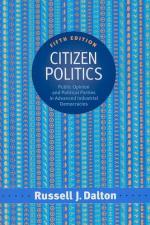|
This section contains 2,728 words (approx. 10 pages at 300 words per page) |

|
Political parties are key institutions in contemporary democracies. As E. E. Schattschneider famously asserted more than half a century ago, "Modern democracy is unthinkable save in terms of the parties" (Schattschneider 1941). With etymological origins dating back to the Latin pars (meaning "part"), parties naturally represent only part of the general interest. Because they unite people on the basis of different ideological principles and opposing interests, parties were initially viewed with suspicion because they were perceived as a threat to the rights of other citizens and the aggregate interest of the community.
The United States in particular has a long-standing tradition of distrust of parties, but antiparty sentiments also existed in Europe. Essentially, political parties when they first emerged were seen as incompatible with the liberal democratic tradition rooted in the political philosophy of John Locke (1632–1704) and the radical democratic tradition inspired by Jean-Jacques Rousseau (1712–1778). Both traditions...
|
This section contains 2,728 words (approx. 10 pages at 300 words per page) |

|


